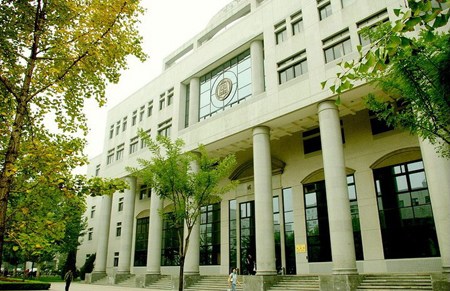(Ecns.cn)--Although Tsinghua Law School is not considered the best in the Chinese mainland, it was the country's only school to make the top 100 QS World University Rankings for law in 2011, coming in at 45th place.
Tsinghua Law was rehabilitated 16 years ago and has a student population of 1,400. As a small-scale school, it has not been named a key education base by the Ministry of Education, so it shocked many experts in the field for its high ranking by the QS system. Yet there are several key factors that led to its selection for the list.
Imported model of education
"What has made Tsinghua Law School so highly recognized is that it is an extroverted law school, which has been highly internationalized," said Zhang Mo, a professor at Temple University.
In 1995, in order to make itself a first-class comprehensive university, Tsinghua decided to reopen its law school, which had been closed since 1952. "At the beginning we decided to make the law school different from traditional ones like Renmin University and Peking University," said Wang Zhenmin, the director of the law school.
A key difference is that most other schools hire their own graduates as teachers, but Tsinghua Law School often hires from abroad. About 80 percent of its teachers have acquired experience from foreign schools.
In 2001, Tsinghua adopted an American-style model of law education. It slashed the 14 compulsory courses regulated by the Ministry of Education to only eight, and added more selective courses so that students could choose the direction they wanted to follow more easily.
"We wanted to make breakthroughs, so it was necessary not to follow others and mould every student in the same pattern, which is not interesting and good for their future development," said Wang Chenguang, the former director of the school.
At the beginning, however, there were disputes over the school's direction. Some people objected to Tsinghua's following an international model, saying it was no use hiring people from abroad who might know the foreign law system better than China's.
But after a trial period the method was proven a success. Teaching methods such as mock trials, clinical legal education and case studies have since been widely accepted in many Chinese law schools.


















